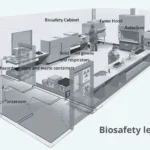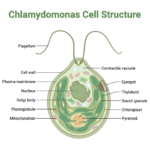How do cyclins control the cell cycle, and what role do mutagens, oncogenes, and metastasis play in the development of primary and secondary tumors?
How do cyclins control the cell cycle, and what role do mutagens, oncogenes, and metastasis play in the development of primary and secondary tumors?
Please login to submit an answer.
Cyclins play a crucial role in regulating the cell cycle, while mutagens, oncogenes, and metastasis are significant factors in the development of tumors. Here’s a detailed overview of how these elements interact and contribute to cancer biology.
Role of Cyclins in Cell Cycle Regulation
Cyclins are regulatory proteins that control the progression of the cell cycle by activating cyclin-dependent kinases (Cdks). Their levels fluctuate throughout the cell cycle, allowing for precise timing of cell cycle events:
- Activation of Cdks: Cyclins bind to Cdks, activating them. This activation is essential for the transition between different phases of the cell cycle, such as from G1 to S phase and from G2 to M phase. For example:
- G1/S Cyclins: These cyclins accumulate in late G1 phase and are crucial for initiating DNA replication in the S phase by activating Cdk2.
- M Cyclins: These cyclins peak during mitosis and activate Cdks that promote processes such as chromosome condensation and spindle formation.
- Regulation of Cell Cycle Checkpoints: Cyclin-Cdk complexes also help regulate checkpoints in the cell cycle, ensuring that cells do not proceed to the next phase until certain conditions are met (e.g., DNA integrity is checked before entering mitosis).
- Coordination with External Signals: The activity of cyclins is influenced by external signals, such as growth factors, which can promote or inhibit cell division based on environmental conditions.
Summary
Cyclins are essential for driving the cell cycle forward, ensuring that cells divide at the right time and under appropriate conditions.
Role of Mutagens, Oncogenes, and Metastasis in Tumor Development
1. Mutagens
- Definition: Mutagens are agents that cause changes in the genetic material of an organism. They can be physical (e.g., radiation), chemical (e.g., certain chemicals), or biological (e.g., viruses).
- Carcinogenic Potential: Some mutagens are classified as carcinogens because they can lead to mutations that initiate cancer development by altering proto-oncogenes or tumor suppressor genes.
2. Oncogenes
- Definition: Oncogenes are mutated forms of proto-oncogenes that promote uncontrolled cell growth and division. When proto-oncogenes undergo mutations or are overexpressed, they can become oncogenes.
- Mechanisms of Activation:
- Point Mutations: Changes in a single nucleotide can lead to a hyperactive protein.
- Gene Amplification: Increased copies of a gene can lead to excessive protein production.
- Chromosomal Rearrangements: Such alterations can create fusion genes that produce abnormal proteins contributing to cancer.
3. Metastasis
- Definition: Metastasis is the process by which cancer cells spread from their original (primary) site to other parts of the body, forming secondary tumors.
- Mechanism:
- Cancer cells can invade surrounding tissues and enter the bloodstream or lymphatic system (intravasation).
- Once in circulation, they may survive under various conditions and eventually exit blood vessels (extravasation) to establish new tumors at distant sites.
- Importance: Metastasis is a key factor in cancer progression and significantly affects treatment options and patient prognosis.
- Share on Facebook
- Share on Twitter
- Share on LinkedIn




